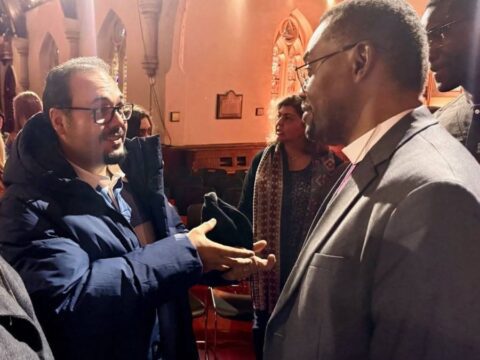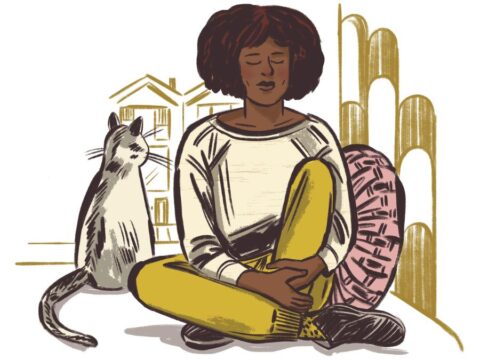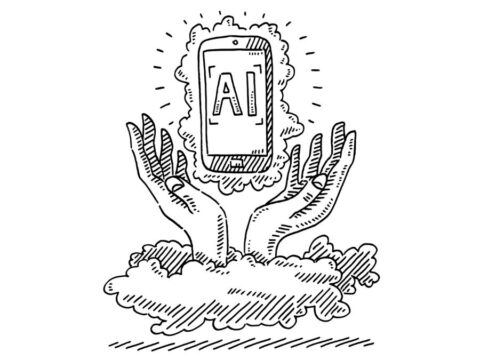It was a brief but telling moment. In his March 9 victory speech, newly elected Liberal leader Mark Carney — former central banker, now prime minister — casually mentioned his fellow parishioner Bob in the course of making a point about tariffs. “Bob goes to my church,” he quipped. “Actually, I go to Bob’s church because he’s there far more often than I am.” Carney, it turns out, is that rare kind of Roman Catholic — one who actually attends mass.
In a country where political leaders seldom discuss religion openly, the remark stood out. Was it a casual aside? A sign of shifting norms? Perhaps both. Either way, it underscored an unspoken truth: even in a largely secular society, faith quietly informs the values of those in power.
You may unsubscribe from any of our newsletters at any time.
How will Canada’s party leaders navigate this country’s unique blend of faith, secularism and pluralism? The answer may define not just an election, but the future of a nation facing unprecedented challenges.
Mark Carney
In his 2021 book, Value(s): Building a Better World for All, Carney recounts some words from Pope Francis that left a lasting impression. The pontiff, before pouring wine for his guests at the Vatican, offered an analogy: “Grappa is one thing — wine distilled. Humanity is many things — passionate, curious, rational, altruistic, creative, self-interested. But the market is one thing: self-interest. The market is humanity distilled.” The pope’s challenge was clear, Carney recalls: “Your job is to turn the market back into wine, to turn the market back into humanity.”
In his tome of a book, Carney treats this idea as both a moral calling and a practical mission. Rooted in social Catholic teaching, he says he seeks to “bring values to value” — infusing markets with compassion. In a world that often knows “the price of everything and the value of nothing,” he makes the case for an economy that serves people, not the other way around.
Throughout Value(s), Carney wrestles with the paradox of wealth — vaults, granite and gold symbolize permanence but remain inherently fragile. He underscores that “kingdoms of gold rise and fall,” calling instead for trust in human institutions — and the values they stand for. Where staunch capitalism sees unfettered markets as a path to universal prosperity, Carney advocates for economy based on innovation, care for the vulnerable and commitment to the common good.
Pierre Poilievre
Conservative Party leader Pierre Poilievre’s relationship with faith blends symbolism with strategy. Raised Roman Catholic, he invokes God in speeches, yet little is known about his personal spirituality. According to his biographer Andrew Layton, in Pierre Poilievre: A Political Life, those close to him suggest that religion has played a minimal role in his adult life — outside of occasional philosophical discussions. When he does step into a church, it’s usually for the campaign trail.
Last July, Poilievre made a striking show of religious outreach, visiting three Toronto-area evangelical churches in Liberal-held ridings — all in the span of a day — delivering short political speeches.
To better understand Poilievre’s engagement with conservative Christian communities, The Tyee spoke with Carmen Celestini, a researcher at the University of Waterloo specializing in religion and the political right. Celestini notes that religious freedom has become a key theme in Poilievre’s messaging, partly fuelled by COVID-era restrictions that some perceived as religious persecution. Poilievre’s rhetoric also aligns with broader backlash against former prime minister Justin Trudeau’s progressive policies on abortion, 2SLGBTQIA+ rights and immigration.
Yet the Calgary-born politician treads carefully, sidestepping divisive issues by assuring voters he won’t restrict abortion access or undo same-sex marriage legislation. Instead, his approach to faith seems rooted in political pragmatism. Two years ago, the Conservative Party of Canada took out a full-page Easter poster in an Ottawa newspaper featuring his face alongside the words, “He is risen.” According to Celestini, the message was ambiguous — was Poilievre or Jesus being celebrated? More than just a nod to faith, she argues, the move was a strategic appeal to Christians.
Jagmeet Singh
“We’re all connected,” NDP leader Jagmeet Singh often says. Singh’s political ethos is rooted in Sikh principles, particularly the concept of Ik Oankar — the belief in universal oneness. This tenet, central to Sikhism, informs his advocacy for social justice, equality and pluralism.
In his memoir, Love & Courage: My Story of Family, Resilience, and Overcoming the Unexpected, Singh recounts how his faith was intertwined with action from an early age. At his local gurdwara in Windsor, Ont., he participated in seva (selfless service), helping serve meals to all visitors, a practice that reflected Sikhism’s emphasis on community care. His mother’s teachings — including that serving strangers was as sacred as serving family — sparked his own lifelong journey into Sikh spirituality.
The visible symbols of Singh’s faith — like his turban and kirpan — have drawn both scrutiny and respect. His political messaging often echoes Sikhism’s call for justice, positioning economic fairness and anti-discrimination efforts as moral imperatives rather than partisan issues. Singh’s policy stances — from universal pharmacare to wealth redistribution — align with Sikhism’s rejection of inequality.
More on Broadview:
- Whose Christianity does Trump want to protect?
- New Ontario MPP Rev. Alexa Gilmour on her call to politics
- How to push candidates on justice issues this election
But Singh avoids framing his party’s platform in explicitly religious terms, instead presenting it as a commitment to collective well-being. “When others suffer, we all do,” he says, a sentiment that bridges spiritual belief and progressive policy.
Elizabeth May
Green Party leader Elizabeth May’s personal faith is also the foundation of her political vision. A self-described “aspiring theologian,” she studied for the Anglican priesthood before turning to politics. Her relationship with God and her church, she writes in her memoir, Who We Are: Reflections on My Life and Canada, has always been a source of joy and comfort, and a driver of moral conviction.
Situated in the social gospel tradition, May sees sin not just in personal failings but in our society’s penchant for waste and inequality. To May, this isn’t just an ecological failure — it’s a spiritual one. Consumerism, she warns, distracts us from life’s bigger questions: what is our purpose? How can we make a difference?
May has spent her career fighting against what she calls in her memoir the “religion” of the free market, rejecting the idea that self-interest should govern our society. Markets are just tools. “They make a good servant but a bad master and a worse religion,” she argues.
In a 2019 CBC interview, when asked who her hero was, May answered without hesitation: “Jesus Christ.” Then she apologized. Why? Because, she explained, in Canada politicians aren’t supposed to wear their religion on their sleeve. Here, faith-inspired politicians often tread carefully, mindful of public perception.
As the Greens move forward under a co-leadership model, we know little yet about May’s new counterpart, Jonathan Pedneault. But with May at the helm, her faith will likely continue to quietly influence the party’s politics, and in turn, its direction.
Editor’s note: Bloc Québécois Leader Yves-François Blanchet was not included in this roundup because of the party’s provincial focus.
***
Julie McGonegal is a writer in Elora, Ont.















Thank you for that information. I have asked the C.B.C. three times to provide it and they declined. I suppose Singh and May are closest ideologically and spiritually to the United Church.
Why is it that when you refer to Carney and his religion it is respectful and Singh it is reapectful but for Poilievre, who seems to keep his religious views to himself, you refer to it as rethoric? Is this not unbiased journalism? Sure sounds biased to me.